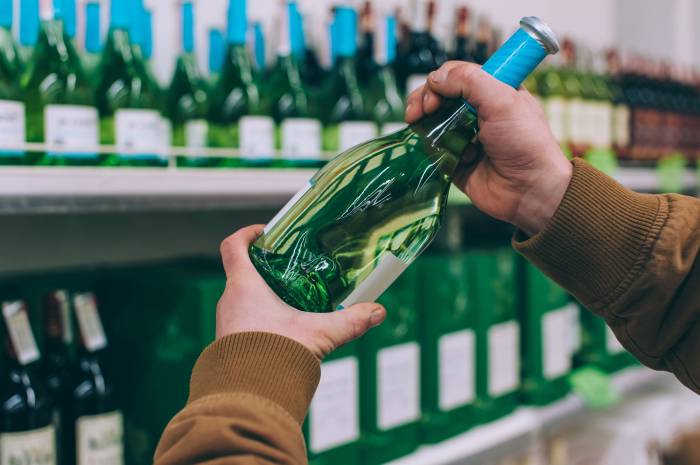Une étude révèle que seuls 32 % des consommateurs français estiment que le vin biologique a bon goût
Pour beaucoup, les préoccupations liées au prix et au goût l'emportent sur les avantages environnementaux, les jeunes adultes étant plus enclins à adopter les options biologiques.
19-11-2025

Le marché français du vin est marqué par un net clivage entre les consommateurs en ce qui concerne les vins biologiques, les avis étant plus partagés sur le goût et le prix que sur l'impact environnemental. Ce clivage a été mis en évidence dans une récente étude en ligne réalisée en septembre 2025 par l'Observatoire Société et Consommation (ObSoCo) pour SudVinBio, l'association interprofessionnelle des vins biologiques du sud de la France. L'étude a été menée auprès de 2 500 adultes représentatifs de la population française.
Selon Agnès Crozet, directrice adjointe de l'ObSoCo, environ un quart des consommateurs d'alcool sont fermement opposés au vin biologique, souvent pour des raisons qui semblent presque idéologiques. Cette résistance est particulièrement forte chez les consommateurs plus âgés, qui ont tendance à être plus attachés au vin conventionnel et sceptiques à l'égard de l'agriculture biologique en général. En revanche, 30 % des personnes interrogées sont des partisans enthousiastes du vin biologique, les jeunes constituant une part importante de ce groupe.
L'étude révèle que 69 % des personnes interrogées boivent du vin, tandis que 22 % ne consomment jamais de boissons alcoolisées et que 9 % boivent de l'alcool mais pas de vin. Parmi les buveurs de vin, 39 % achètent du vin biologique et 30 % s'en tiennent exclusivement au vin conventionnel. Les jeunes adultes sont surreprésentés parmi les consommateurs de vin biologique : les moins de 35 ans représentent 28 % de la population générale, mais 31 % des buveurs de vin biologique. En revanche, seuls 18 % des consommateurs exclusifs de vin conventionnel ont moins de 35 ans. M. Crozet note que les jeunes sont également plus susceptibles de s'abstenir complètement de boire du vin, 36 % des non-buveurs de vin appartenant à ce groupe d'âge.
Interrogés sur les avantages et les inconvénients de la production et de la consommation de vin biologique, les consommateurs exclusifs de vin conventionnel et les non-buveurs s'accordent largement sur le fait que l'agriculture biologique contribue à la protection de l'environnement et de la biodiversité. Cinquante-trois pour cent des consommateurs exclusivement conventionnels sont d'accord avec cette affirmation. Toutefois, M. Crozet souligne que des désaccords apparaissent sur d'autres points, en particulier le goût et le rapport qualité-prix.
Seuls 32 % des personnes interrogées estiment que le vin biologique a bon goût, tandis que 24 % ne sont pas d'accord et que 43 % ne sont pas sûrs, souvent parce qu'ils n'en boivent pas eux-mêmes. Le vin biologique n'est pas perçu comme étant à la portée de tous : 35 % pensent qu'il est réservé aux connaisseurs, et 37 % pensent que peu de gens l'apprécient réellement. Le prix reste la question la plus controversée : 40 % des personnes interrogées considèrent que le vin biologique n'a pas un bon rapport qualité-prix, contre seulement 19 % qui estiment qu'il s'agit d'une bonne affaire. Près de six consommateurs de vin non biologique sur dix le considèrent comme cher et difficile d'accès, tandis que 13 % seulement le jugent abordable.
L'étude a réparti les personnes interrogées en six groupes en fonction de leur attitude à l'égard du vin biologique. Vingt-quatre pour cent sont "fermés" aux vins biologiques et en ont une image négative ; il s'agit principalement de consommateurs plus âgés qui rejettent l'agriculture biologique par principe et considèrent les vins biologiques comme élitistes. Dix-huit pour cent sont des "épicuriens", généralement des personnes bien éduquées qui associent les vins biologiques au plaisir, au goût et à l'écologie, mais qui déplorent le manque de variété disponible. Douze pour cent sont des "chercheurs de statut", des personnes plus jeunes qui consomment des vins biologiques par conviction profonde. Les autres groupes comprennent les "disponibles" (22 %), qui consomment d'autres produits biologiques mais connaissent peu le vin ; les "pragmatiques" (19 %), qui croient en la qualité et la valeur environnementale des vins biologiques mais sont dissuadés par le prix ; et un petit groupe qualifié de "conflictuel", qui a essayé des vins biologiques mais dont l'expérience a été décevante.
Julien Franclet, président de SudVinBio, a réagi aux résultats en soulignant que les consommateurs ont généralement une vision positive du label biologique, en particulier en ce qui concerne ses avantages pour l'environnement. Toutefois, il a reconnu que les préoccupations relatives au prix sont répandues dans tous les secteurs de l'agriculture biologique certifiée, et pas seulement dans celui du vin.
Les résultats suggèrent que, bien qu'il y ait un consensus sur les avantages environnementaux de la viticulture biologique en France, des obstacles importants subsistent en ce qui concerne les perceptions gustatives et l'accessibilité financière. Ces facteurs continuent de façonner le comportement des consommateurs sur un marché où tradition et innovation s'affrontent souvent.
Fondée en 2007, Vinetur® est une marque déposée de VGSC S.L. qui a une longue histoire dans le secteur du vin.
VGSC, S.L., dont le numéro de TVA est ESB70255591, est une entité inscrite au registre du commerce de Saint-Jacques-de-Compostelle, Spagna.
Email: [email protected]
Sede e uffici a Vilagarcia de Arousa, Galice.